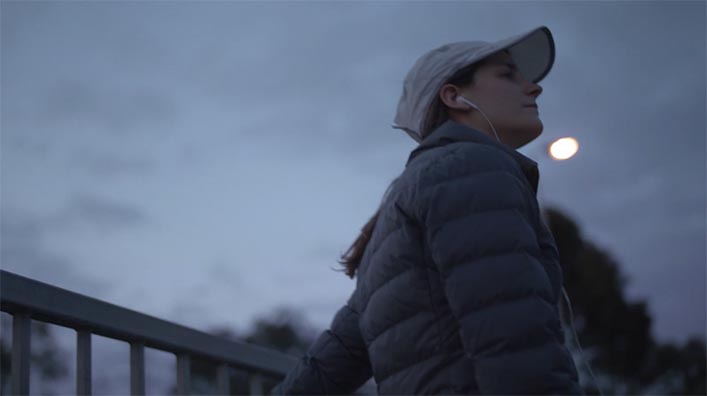Healthcare Worker Voices
HIVE app is on the way
Since March, Associate Professor Luke Burchill (Department of Medicine, RMH) has watched his colleagues navigate a new reality responding to the COVID-19 pandemic and wondered what could be done to support the mental health of frontline workers.
So he brought together clinicians, researchers, mental health experts and creatives, and started COVIDDA, a research collaboration. Together they have co-designed an app called Royal Melbourne Hive to serve as a safe space for frontline health workers to feel connected, informed and supported during the pandemic. It also allows them to undertake a self-check of their own mental health and wellbeing and, access mental health supports tailored to their needs.

Doctors, nurses, ward clerks and others shared their experiences of COVID-19. They spoke about connections with patients, families and colleagues. They also shared inspiring stories of people rising to the challenge and the importance of solidarity and teamwork.
Working with Phoenix Australia, the national centre of excellence for posttraumatic mental health, Associate Professor Burchill and his team also developed 40 short films providing mental coping strategies and practical tips for frontline health workers. These will be made available in the app, but a selection are already available to watch here.
The app is in the final stages of being refined, and the team are seeking support to roll it out beyond the RMH.
Nossal Institute COVID-19 Health Worker Voices
The Nossal Institute for Global Health and the School of Computing and Information Systems have teamed up with Amazon Web Services (AWS) and Twilio, to create a WhatsApp channel to compile voice memos from health workers across Australia and the world on their challenges and successes in the unfolding COVID-19 crisis.
They’re asking health workers to share their stories through simple voice memos which will offer insights into the specific challenges they face, as well as solutions proposed and innovations undertaken, by individuals and health systems in which they work.
The stories will also convey the range of coping strategies adopted by health workers over time. The hope is that the sharing of stories will also provide cathartic purpose for health workers. Read the Pursuit article, and tell your story here.
Journal of the Plague Year
Similar in scope, but taking a longer view, is the Faculty of Arts’ Journal of the Plague Year, project, led by historian Professor Andrew May, in partnership with the University of Arizona, to create a global archive of accounts about living with coronavirus. Andrew and his team are keen to boost the number of accounts from healthcare workers.
“We’re interested in the obvious experiences of social distancing, shortages, closure of venues and so on, but also the personal and emotional impact of isolation, working from home, job loss, dealing with kids, and looking after the vulnerable,” Andrew said.
MDHS Museums – tell your story, donate objects
The Faculty of Medicine, Dentistry and Health Sciences museums want to collect material that will record the response to the COVID-19 pandemic in our community of students, staff, researchers and colleagues in the health sector, to tell the stories of this moment in time for future generations. How has this pandemic transformed our lives?
Lots of overlap with the projects above, with the difference that the museums are also soliciting donations of objects and ephemera, from masks to posters. Read more.